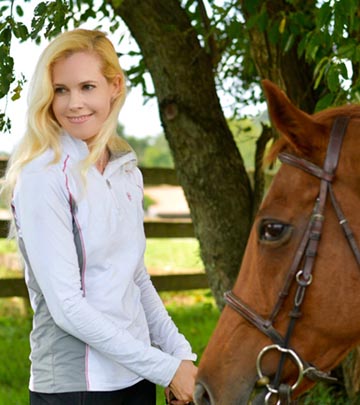
Setting up an equine business on your property is a marathon not a sprint with many items to check off in the beginning and then adjustments to be made over time as your business develops, grows, and you acquire clients. This is not an exhaustive list or a full analysis of complex business/legal issues but a high level overview of some big ticket items to be aware of:
Question: What is the best business structure for my business?
It depends. There are several different options, e.g. sole proprietorship, general partnership, limited partnership, corporation (c-corporation or s-corporation), or limited liability company. An LLC — Limited Liability Company — is often a popular option as there is no personal liability of the owners/members. Check with your state for the requirements to set up— fees, articles of incorporation with the state of formation, and have an operating agreement. After setting up your business conduct it in the most “business-like” manner and even if operating on your property, make sure to separate business from personal. Make sure to have a separate email for your equine business and a separate banking, plus comply with state + local licensing requirements as appropriate, as well as tax and insurance needs.
Question: How do I limit personal liability?
The goal is to limit personal liability if the business incurs debts or liabilities. If you fail to treat your business like a business you can potentially be subject to “piercing the corporate veil”, a legal concept where a court (if there was a lawsuit) would treat your corporation as it did not exist and hold you personally liable for the debts and liabilities of your business. That said, strive to best position yourself to avoid such a challenge or prevail if confronted with one. Consult with an attorney licensed in your jurisdiction, as needed. Remember:
- Separate banking for Your Equine Business + Keep Operating Accounts Reasonably Funded
- Utilize/Operate Under Corporate Name (e.g. X Farm, LLC)
- Comply with Annual Filing Requirements for your State
- Maintain Corporate Records and Minutes
- Draft and Use Appropriate Contracts (e.g. Farm Rules and Regulations, Liability Waivers, Boarding Agreements). *Sign contracts in the name of the corporation and identify the status of the person who has signed the contract on behalf of the corporation, e.g. X Farm, LLC, By: ____ X, President.
- Obtain Adequate Insurance
- Comply with Local Business Regulations
Question: Do I need insurance?
Yes. Just because your state has an EALA (Equine Activity Liability Law), you have clients sign liability releases, or because your barn is on your property and you have a standard homeowner’s insurance policy, you need business insurance and potentially worker’s compensation insurance, as appropriate. Homeowner’s policies are not business insurance and likely exclude coverage for matters resulting from business matters. Your umbrella policy also may not cover. Check the exclusions in your policies. Confirm with your insurance agent that you are covered for business activities and ask about extra insurance called “care, custody, and control” insurance which would be appropriate if an accident or injury only affects a horse which is treated as personal property. Worker’s compensation insurance may also be appropriate if you have employees working for your equine business (not independent contractors.) See article on independent contractor vs. employee here. Classification matters.
Question: What is an EALA?
Most states have enacted an EALA – an Equine Activity Liability Act. These state statutes are designed to limit liability for injury and/or death in connection with equine activities which we all know are inherently dangerous. The statutes operate on an “assumption or risk” theory — i.e. if you are knowingly engaging in equine activities, you are assuming the risk of a dangerous activity if you decide to participate, therefore potentially providing a legal defense to equine-related claims.
While states’ acts share common characteristics, they often differ in some aspect or another. Check your particular jurisdiction to ensure that you are complying with its requirements (e.g. posting/notice requirements—something as simple as posting two 2×3 signs in conspicuous places on your property) or you might be precluded from utilizing such a defense in connection with a legal claim as you may be considered as failing to comply with the requirements of your state’s statute. Also, be mindful that in some jurisdictions children/minors are not covered. Familiarize yourself with your state’s statute as it may be deterrent to frivolous lawsuits and/or assist in defending a lawsuit. Consult an equine attorney, as appropriate, in your jurisdiction.
This article does not constitute legal advice. When questions are based on specific situations, direct them to a knowledgeable attorney.



